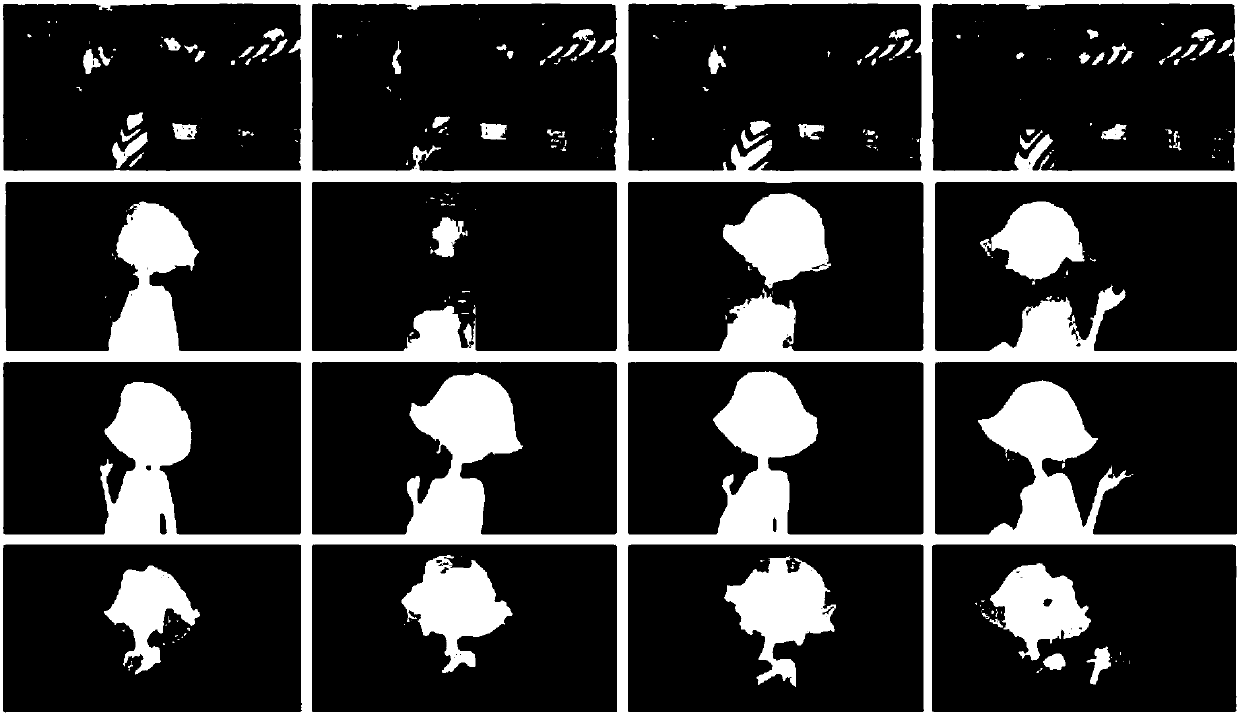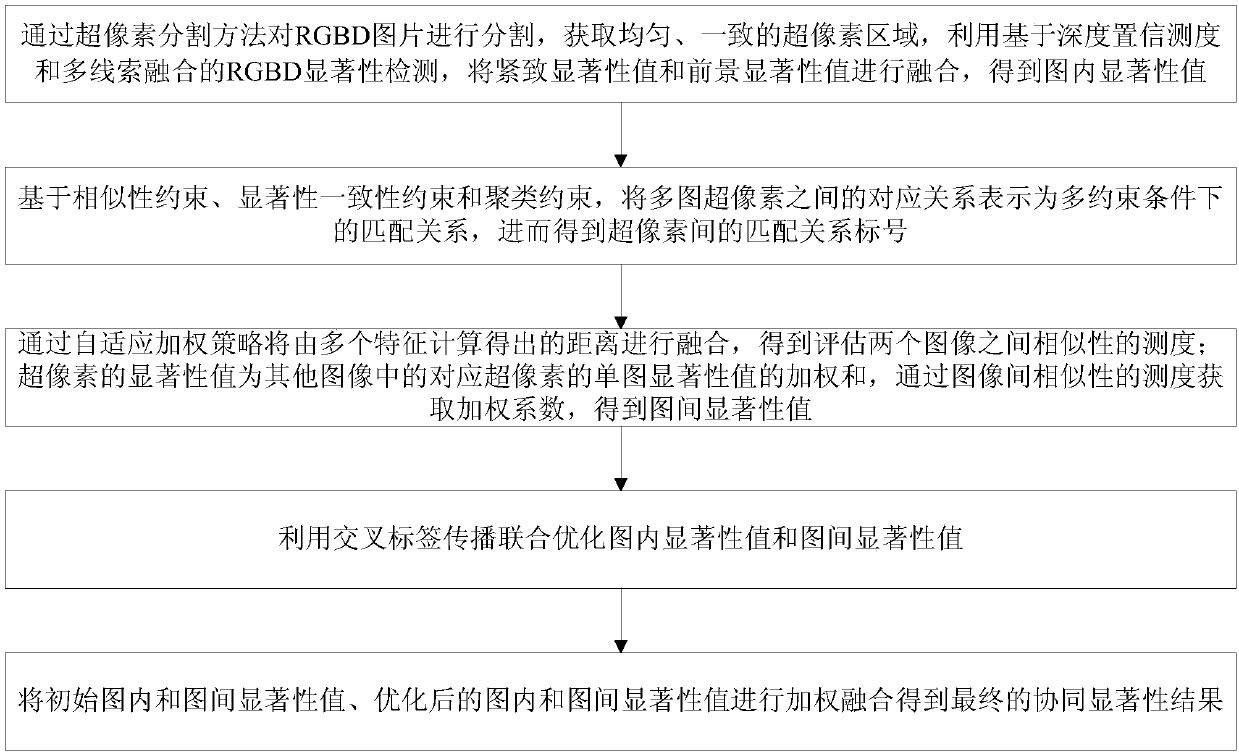Cooperative significance testing method
A detection method and remarkable technology, applied in the field of stereo vision and image processing, can solve the problems of lack of multi-scale inter-graph relationship acquisition method, lack of joint optimization graph method, etc., to achieve good consistency and suppress complex background areas.
- Summary
- Abstract
- Description
- Claims
- Application Information
AI Technical Summary
Problems solved by technology
Method used
Image
Examples
Embodiment 1
[0039] In order to accurately and completely extract the common saliency objects of the RGBD image group, the embodiment of the present invention designs a collaborative saliency detection method, see figure 1 and figure 2 , the specific implementation steps are as follows:
[0040] 101: Segment the RGB image through the superpixel segmentation method to obtain a uniform and consistent superpixel area, and use the RGBD saliency detection based on the depth confidence measure and multi-cue fusion to fuse the compact saliency and the foreground saliency to obtain Significance value in the graph;
[0041] 102: Based on similarity constraints, saliency consistency constraints, and clustering constraints, express the corresponding relationship between multi-image superpixels as a matching relationship under multiple constraints, and then obtain the matching relationship label between superpixels;
[0042] 103: Fuse the distances calculated by multiple features through an adaptiv...
Embodiment 2
[0047] The scheme in embodiment 1 is further introduced below in conjunction with specific calculation formulas and examples, see the following description for details:
[0048] 201: superpixel segmentation;
[0049] Suppose there are N RGB color images in the image group Its corresponding depth map is Using SLIC (simple linear iterative clustering) superpixel segmentation method to image I iCarry out segmentation, and obtain N after segmentation i A uniform and consistent superpixel region, denoted as Among them, D i is the i-th depth map; is the superpixel region.
[0050] 202: In-graph saliency calculation;
[0051] The intra-graph saliency model is used to calculate the saliency map of a single image in an image group, without involving the relationship between graphs. In a single image, salient objects usually exhibit distinct appearance characteristics from background regions, thereby making salient objects stand out. In addition, depth information, as a sup...
Embodiment 3
[0096] Combine below figure 1 and figure 2 , carry out feasibility verification to the scheme in embodiment 1 and 2, see the following description for details:
[0097] figure 1 The visual detection results of this method are given. The first row is the original RGB color image, the second row is the corresponding depth map, the third row is the ground truth image, and the fourth row is the co-saliency detection result obtained by this method.
[0098] From figure 1 It can be seen from the figure that this method can effectively extract the common saliency target of the image group, that is, the blonde cartoon character, and can effectively suppress the complex background area to obtain a more complete and consistent saliency target.
[0099] Those skilled in the art can understand that the accompanying drawing is only a schematic diagram of a preferred embodiment, and the serial numbers of the above-mentioned embodiments of the present invention are for description only,...
PUM
 Login to View More
Login to View More Abstract
Description
Claims
Application Information
 Login to View More
Login to View More - R&D
- Intellectual Property
- Life Sciences
- Materials
- Tech Scout
- Unparalleled Data Quality
- Higher Quality Content
- 60% Fewer Hallucinations
Browse by: Latest US Patents, China's latest patents, Technical Efficacy Thesaurus, Application Domain, Technology Topic, Popular Technical Reports.
© 2025 PatSnap. All rights reserved.Legal|Privacy policy|Modern Slavery Act Transparency Statement|Sitemap|About US| Contact US: help@patsnap.com



